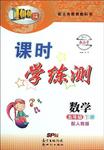题目内容
阅读理解
阅读下列短文,从每题所给的A、B、C、D四个选择中选出最佳选项。
LONDON- “Everyone else has one!”Lucy declared to her parents, trying to get a mobile phone as a gift for her 14th birthday. Her parents gave in.
Curious to know how her daughter would use the phone, Jane Bidder, the mother, followed Lucy to the school bus in the morning. The bus seats 20, of whom half have a mobile phone. One rings and several adolescent owners fumble with their bags.
Many parents have just come to realize that the mobile phone is no longer only for travelling businessmen--it is as likely to be found in school bags.
The mobile phone seems to have become something essential for today’s teens in Britain, according to a survey published last week, by NOP a leading market research company in Britain. Research found that 66 per cent of 16-year-olds now have access to a mobile phone.
The mobile phone has been turned into a secret messaging service by teen users. When they are talking on the mobile, their parents are not able to eavesdrop on the second line.
The interviews with 2,019 young people aged 7 to 16 found that they favour the text messaging services because they offer a secret way of keeping in touch. The days of secret notes in the classroom are dying out.
For example,“cya”means“see you”;“lol”means“laughs out loud”; and“2nite”is an abbreviation of “tonight”. All these are based on shorthand phrases used on the Internet.
Many schools have banned students using mobile phones. But they are not very successful. Still phones ring in the class and disturb study.
Besides, people are worried about the health risk to kids using mobile phones.
Scientists believe children are especially vulnerable (易受伤害的) to the mobile radiation.
1.The story of Lucy is told to show us ________.
[ ]
A.British parents meet their children’s needs whatever they are
B.British kids have good relationships with their parents
C.how British parents accept the truth of teenagers owning a mobile phone
D.why every child gets a mobile phone as a birthday present in UK
2.What would be the best title for this news story?
[ ]
A.School bans mobile phones.
B.Parents’ curiosity about children using mobiles.
C.Mobile popularity among UK teens.
D.Secret messages popular among kids in UK.
3.The underlined word“eavesdrop”means ________.
[ ]
4.Interviews discover children like sending messages instead of ________.
[ ]
A.calling each other
B.writing to each other
C.playing games online
D.greeting each other
解析:
|
1.此题考查学生对全文判断推测的能力。文章围绕英国青少年拥有移动手机而叙述,故选D。 2.此题考查文章主旨大意。 3.从their parents are not able to…on the second line.可以推测出父母不能从分机上偷听,故选C。 4.从The days secret notes in the classroom are dying out中可知,“在教室里写秘密便条的日子将不复存在”,故选B。 |

 百年学典课时学练测系列答案
百年学典课时学练测系列答案